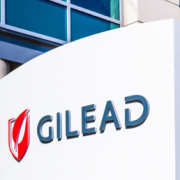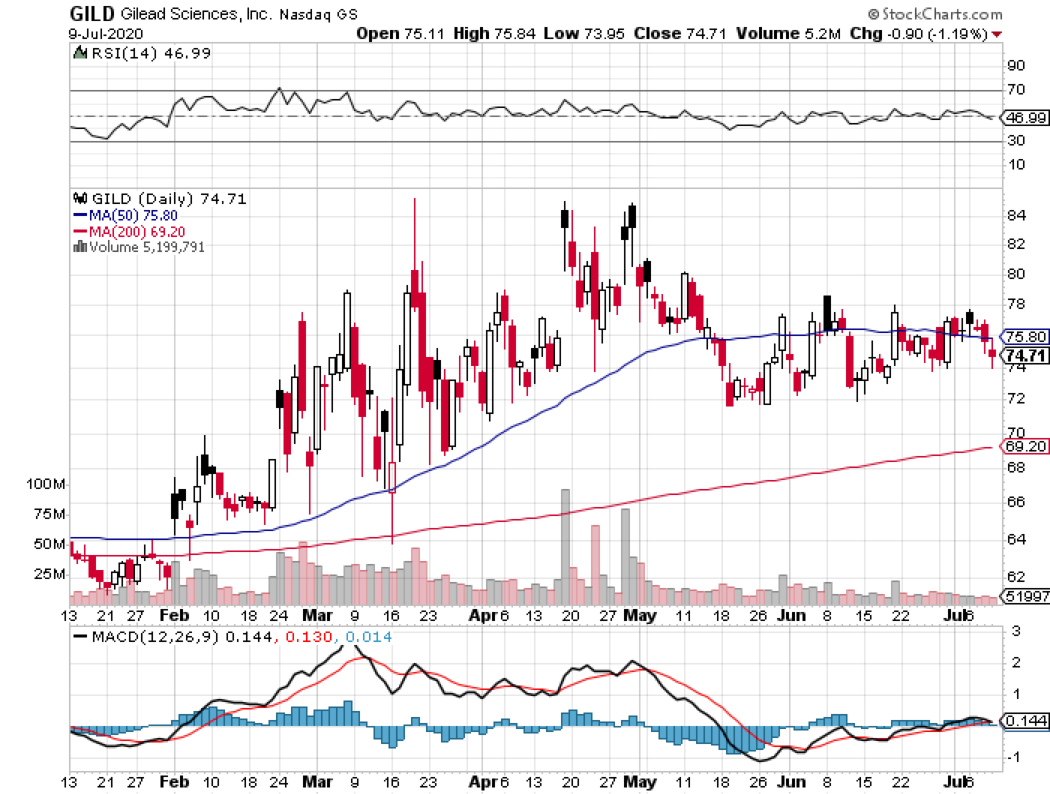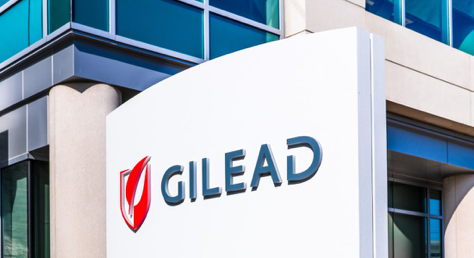Gilead Sciences Remdesivir Miracle
Gilead Sciences (GILD) has been in the spotlight for months now. The company gained even more attention when the FDA granted it emergency authorization to use its drug Remdesivir as a COVID-19 treatment.
To date, there are roughly 20 clinical trials for Remdesivir across the globe --- and Gilead is wasting no time to expand the use of this drug.
In a recent announcement, the company shared that Remdesivir will also be tested as an inhaled formulation for outpatients.
To compare, the drug is currently given in intravenous form to patients who are already considered severe cases. This latest iteration of the drug could offer a COVID-19 treatment to those with mild cases which could eventually lead to early treatment of the disease, making hospitalization unnecessary.
At the moment, Remdesivir shortens the recovery period of hospitalized COVID-19 patients by four days or roughly 31%.
Gilead will test this inhaled formulation of Remdesivir on 60 healthy participants in the US.
Aside from testing its inhaled formulation, the company is also planning to test an IV version of Remdesivir. This could be used for outpatient settings, such as nursing homes and infusion centers.
There are also trials to determine whether the efficacy level of Remdesivir could increase if combined with other drugs. For this, Gilead is working with Roche (RHHBY) for its Actemra and Eli Lilly (LLY) to test Olumiant. Both are used to treat rheumatoid arthritis.
Since the pandemic started and Gilead’s COVID-19 efforts, the company’s shares jumped by 17.5% so far, topping the 2% decline of the S&P 500 Index.
A notable factor that has been fueling Gilead’s improvement is the US government’s confidence in Remdesivir.
In early July, the Department of Health and Human Services all but wiped clean the company’s Remdesivir supply as it contracted Gilead to sell 500,000 treatment courses to US hospitals through the end of September.
This purchase adds up to $1.2 billion in Remdesivir sales in the third quarter of 2020 alone, with the drug estimated to generate $1.8 billion in the fourth quarter.
This puts the estimated total sales of Remdesivir at $3 billion for this year.
The company set the price for each course of Remdesivir treatment at $2,340 for the government, with a price tag of $3,120 for private US insurers. At this price point, every patient is estimated to save $12,000 in hospital bills.
This is actually lower than the anticipated pricing of Remdesivir. Initially, the cost per treatment course was projected to reach $5,080.
However, this pricing estimate is intended for developed countries.
For developing countries, Gilead forged deals with various generic manufacturers to ensure that the treatment is provided at substantially lower prices.
So far, the company has established licensing deals with generic drugmakers in 127 developing countries.
One of them is Mylan N.V. (MYL), which has received authorization from the Indian government to market its generic version of the Remdesivir.
Mylan’s version, which will be sold under the brand name Desrem, is expected to be around $62.40 per vial.
This is about 80% cheaper than Gilead’s Remdesivir, which costs $390 for each vial.
Outside its COVID-19 efforts, Gilead’s FDA application for rheumatoid arthritis drug Filgotinib is expected to inject the company’s top line with a much-welcomed sales growth.
Although Gilead’s 2019 top line fell flat, its first-quarter earnings report showed a promising 5% year-over-year bump in its sales. This growth is primarily attributed to the continuous improvement of its HIV product line, which showed a 14% increase in sales.
Overall, Gilead remains a value buy.
Gilead stock currently trades at 11.6 times its expected earnings over the course of the next 12 months, which is well above its average 7.3 times earnings.
The stock offers a quarterly dividend of $0.68, yielding a reasonable 3.5% annually. As modest as it sounds, this still well above the usual 2% that shareholders typically expect from an average stock.




